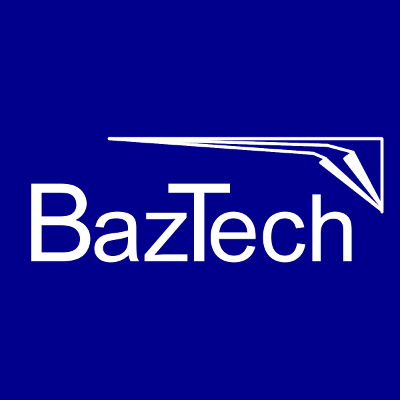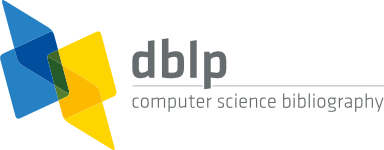| 2025 | |
| [1] | , "Guidelines for Conducting Action Research Studies in Software Engineering", In e-Informatica Software Engineering Journal, vol. 19, no. 1, pp. 250105, 2025.
DOI: 10.37190/e-Inf250105. Download article (PDF)Get article BibTeX file |
Authors
Miroslaw Staron
Abstract
Context: Action research is popular in software engineering due to its industrial nature and promises of effective technology transfers. Yet, the methodology is still gaining popularity, and guidelines for conducting quality action research studies are needed.
Objective: This paper aims to collect, summarize, and discuss guidelines for conducting action research in academia-industry collaborations. The guidelines are designed for researchers and practitioners alike.
Method: I use existing guidelines for empirical studies and my own experiences to define guidelines for researchers and host organizations for conducting action research.
Results: I identified 22 guidelines for conducting action research studies. They provide actionable recommendations on identifying the relevant context, planning and executing interventions (actions), reporting them, and reasoning around the ethics of action research.
Conclusions: The paper concludes that the best way of engaging with action research is when we can be embedded in the host organization and when the collaboration leads to tangible change in the host organization and the generation of new scientific results.
Keywords
action research, guidelines, empirical methods
References
1. R.L. Glass, “The software-research crisis,” IEEE Software, Vol. 11, No. 6, 1994, pp. 42–47.
2. C. Wohlin, P. Runeson, M. Höst, M.C. Ohlsson, B. Regnell et al., “Experimentation in software engineering: An introduction,” The Kluwer International Series In Software Engineering, 2000.
3. P. Runeson and M. Höst, “Guidelines for conducting and reporting case study research in software engineering,” Empirical software engineering, Vol. 14, 2009, pp. 131–164.
4. R.J. Wieringa, Design science methodology for information systems and software engineering. Springer, 2014.
5. P. Ralph, N.b. Ali, S. Baltes, D. Bianculli, J. Diaz et al., “Empirical standards for software engineering research,” arXiv preprint arXiv:2010.03525, 2020.
6. P.S.M. dos Santos and G.H. Travassos, “Action research use in software engineering: An initial survey,” in 2009 3rd international Symposium on empirical software Engineering and measurement. IEEE, 2009, pp. 414–417.
7. P.S.M. Dos Santos and G.H. Travassos, “Action research can swing the balance in experimental software engineering,” in Advances in computers. Elsevier, 2011, Vol. 83, pp. 205–276.
8. R.L. Baskerville, “Investigating information systems with action research,” Communications of the association for information systems, Vol. 2, No. 1, 1999, p. 19.
9. R. Davison, M.G. Martinsons, and N. Kock, “Principles of canonical action research,” Information systems journal, Vol. 14, No. 1, 2004, pp. 65–86.
10. I. Bleijenbergh, J. van Mierlo, and T. Bondarouk, “Closing the gap between scholarly knowledge and practice: Guidelines for hrm action research,” Human resource management review, Vol. 31, No. 2, 2021, p. 100764.
11. M. Staron, Action research in software engineering. Springer, 2020.
12. Q. Song and P. Runeson, “Industry-academia collaboration for realism in software engineering research: Insights and recommendations,” Information and Software Technology, Vol. 156, 2023, p. 107135.
13. P. Runeson, “It takes two to tango–an experience report on industry–academia collaboration,” in 2012 IEEE Fifth International Conference on Software Testing, Verification and Validation. IEEE, 2012, pp. 872–877.
14. Y. Dittrich, K. Rönkkö, J. Eriksson, C. Hansson, and O. Lindeberg, “Cooperative method development: Combining qualitative empirical research with method, technique and process improvement,” Empirical Software Engineering, Vol. 13, 2008, pp. 231–260.
15. K. Petersen, C. Gencel, N. Asghari, D. Baca, and S. Betz, “Action research as a model for industry-academia collaboration in the software engineering context,” in Proceedings of the 2014 international workshop on Long-term industrial collaboration on software engineering, 2014, pp. 55–62.
16. M. Staron and W. Meding, “Software development measurement programs,” Springer. https://doi. org/10.1007/978-3-319-91836-5, Vol. 10, 2018, p. 3281333.
17. C. Wohlin and P. Runeson, “Guiding the selection of research methodology in industry–academia collaboration in software engineering,” Information and software technology, Vol. 140, 2021, p. 106678.
18. M. Staron, J. Strom, A. Karlsson, and W. Meding, “Using generative ai to support standardization work–the case of 3gpp,” International Conference on Product-Oriented Software Process Improvement, PROFES, 2024.
19. P. Sedgwick and N. Greenwood, “Understanding the hawthorne effect,” Bmj, Vol. 351, 2015.
20. M. Staron and W. Meding, “Mesram–a method for assessing robustness of measurement programs in large software development organizations and its industrial evaluation,” Journal of Systems and Software, Vol. 113, 2016, pp. 76–100.
21. K. Kantola, J. Vanhanen, and J. Tolvanen, “Mind the product owner: An action research project into agile release planning,” Information and Software Technology, Vol. 147, 2022, p. 106900. [Online]. https://www.sciencedirect.com/science/article/pii/S0950584922000611
22. T. Natarajan and S. Pichai, “Behaviour-driven development and metrics framework for enhanced agile practices in scrum teams,” Information and Software Technology, Vol. 170, 2024, p. 107435. [Online]. https://www.sciencedirect.com/science/article/pii/S0950584924000405
23. K.K. Kemell, A. Nguyen-Duc, M. Suoranta, and P. Abrahamsson, “Startcards — a method for early-stage software startups,” Information and Software Technology, Vol. 160, 2023, p. 107224. [Online]. https://www.sciencedirect.com/science/article/pii/S0950584923000782








